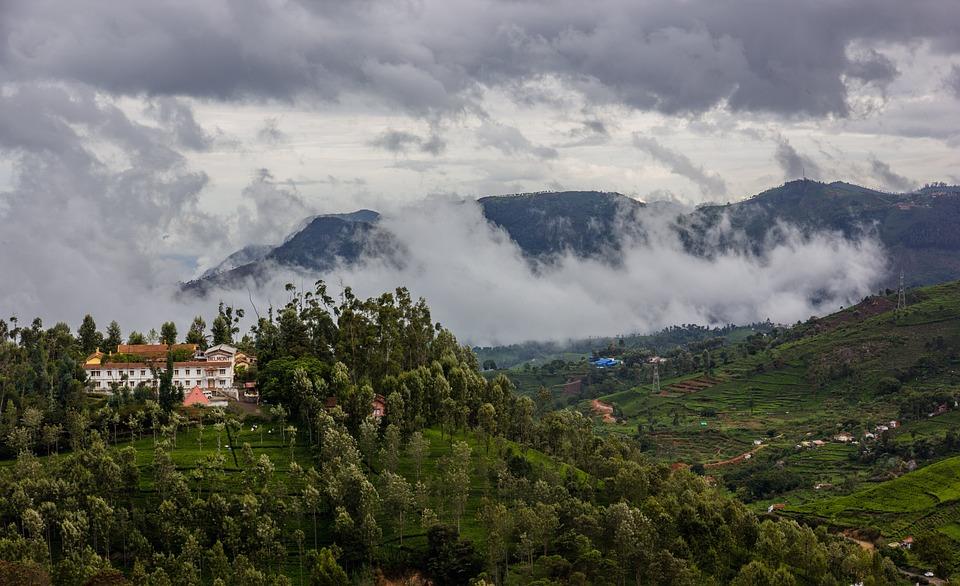(MENAFN- The Peninsula) Bloomberg
All the carbon dioxide that's accumulating in the atmosphere and heating the planet has given carbon-munching things on the ground plenty to eat. Land ecosystems have taken more CO2 out of the atmosphere in the last few decades than they did before - a 'bonus' that essentially cleans up some pollution for us. Scientists hope it lasts, but they're increasingly worried it won't:
Stressed Forests and other ecosystems may be sending us advance warnings that they are transforming under pressure.
About 30% of carbon emissions end up in plants, trees and soil, and another 25% in the ocean. The past few years have brought concerns that the land carbon sink - as scientists refer to it - is becoming destabilized. The carbon absorption of the ocean and the Amazon may already be slowing down.
Satellite imagery and ground measurements reveal that the CO2 bonus is less stable, particularly in places with drying soils and limited nitrogen, which plants need to grow. Spots of concern include eastern Africa, the Mediterranean region, the North and Central American western coasts, India and southeast Asia, according to a study published last week in Nature.
The research team measured two elements of these systems: the year-to-year changes in carbon uptake, and how likely it is for a system to return to its previous condition. When there are a lot of shocks - and climate change is already delivering them - and when the area doesn't snap back to its original state, the odds increase that systemic change is underway. As a result, the land draws down less of our atmospheric carbon.
'Every oscillation in the system gets amplified through time, because it 'remembers' better what happened before,' said Marcos Fernández-Martínez, a researcher at the Autonomous University of Barcelona and the lead author of the Nature study. 'So these ripples get Bigger and bigger and bigger, and then they lead to an eventual change in the state of that system.”
The researchers for the first time applied to land carbon sinks a methodology used previously to study so-called tipping points in major Earth systems that keep the planet running in the manner we're accustomed to.
Two other studies released last month provided updates on the big picture.
One of those, a commentary in the journal One Earth, offered what the researchers called 'the most extensive list available of climate feedback loops,' or large-scale changes that either increase or decrease global heating. The authors found 41, ranging from sea -ice loss to thawing permafrost, wildfires, forest decay and insect outbreaks.Twenty-seven of them make climate change worse, seven help us out and another seven are blurred in effect.
The increased CO2 going into plants and forests is identified as an ally in the climate fight, so if their ability to absorb that CO2 is weakening, it means people have to make up the difference by sending up less carbon.
Timothy Lenton, a leading tipping-points researcher at the UK's University of Exeter, said the Nature study, which he did not work on, makes sense in that it backs up what scientists have been predicting.
'It's not good news, but scientifically, it's encouraging to see that there's what we would expect as the consistent signal of instability,' he said.
Likewise, a wide-ranging scientific review published last month in Reviews of Geophysics examined what the authors called 'tipping elements.' Led by Seaver Wang, co-director of climate and energy at the Breakthrough Institute, the study in part looked at the effect of extra CO2 specifically on Amazon forests. Researchers found that while the CO2 drawdown can compensate for some losses of land or forest carbon , it's not as well understood as they'd like and that makes it difficult to draw conclusions about global rainforests.
The world has heated up to 1.2C since industrialization and is expected to pass the 1.5C guideline stipulated by the Paris agreement in the next two decades. To pull down enough carbon dioxide to lower the temperature back below 1.5C would require a very healthy, very hungry biosphere, said Richard Betts, head of climate impacts research at the UK Met Office Hadley Center and a University of Exeter professor, who was not a part of the Nature study.
'These findings remind us that we can't take that for granted,' Betts said. 'This increases the urgency of reducing our emissions now, so we don't end up in uncharted territory relying on free services from nature that may in fact be unreliable.”



















Comments
No comment